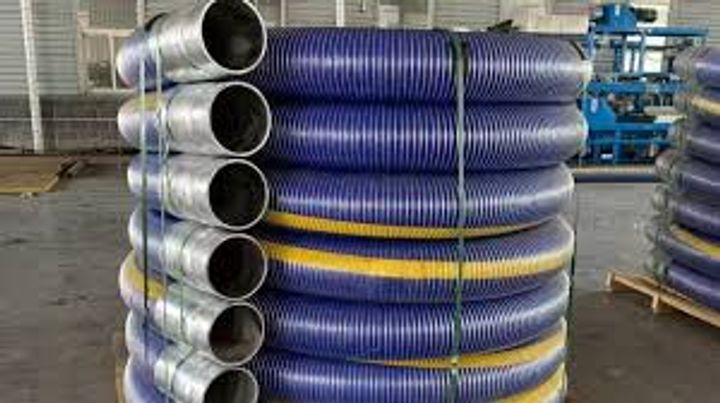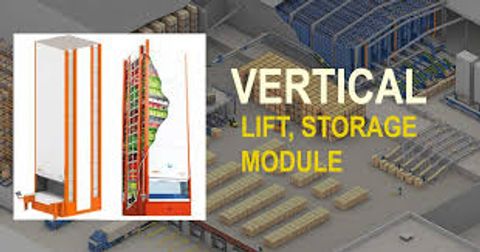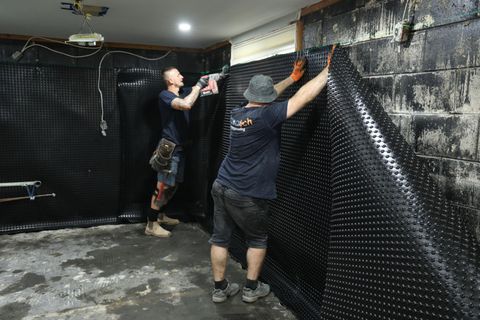
Hose Pipes: The Unsung Heroes of Fluid Transfer Guidance
Hose pipes which seem simple, are used widely in many industries to move liquids, gases and solids. No matter how large or small the job, pipes are needed and always highly useful. Because of their flexibility, these tubes can handle many pressures, temperatures and chemicals without causing hazards. Being familiar with hose pipe technology improves how fluid is moved and keeps the system safe
Overview of Hose Pipes
This article will provide a comprehensive overview of hose pipes, touching upon the critical aspects of their design, manufacture, and application. We will explore the various categories of hoses, from robust hydraulic hoses designed for high-pressure systems to versatile PVC flexible pipes used in a multitude of settings. The discussion will encompass the vital role of specialized manufacturers in producing these essential components, examining the materials, features, and benefits that define different hose types. Furthermore, we will delve into the industrial landscape, recognizing the significance of industrial hose manufacturers and their contributions to diverse sectors.
Importance of Hose Pipes
Hose pipes are far more than just conduits; they are critical arteries in the circulatory systems of modern industry and everyday life. Their importance stems from their ability to safely and efficiently transport essential substances, enabling operations across various sectors. Without reliable hose pipes, hydraulic systems in construction equipment would cease to function, chemical plants would halt production, and even simple tasks like watering a garden would become challenging. They are engineered to withstand extreme conditions, preventing leaks, blowouts, and contamination, which can have severe consequences for safety, efficiency, and environmental protection. Their flexibility allows for dynamic movement and easy routing in complex systems, making them indispensable where rigid piping is impractical. Ultimately, the performance and longevity of a hose pipe directly impact the productivity, safety, and operational costs of countless applications.
Bulk Hydraulic Hose
Bulk hydraulic hose is hose sold in long uncut pieces on spools instead of cut and assembled in lengths. Because of this, distributors and users who need different sizes can enjoy both convenience and lower prices. Manufacturers of hydraulic hoses rely on it since it enables them to supply the necessary raw material which can later be cut, crimped and assembled for use on heavy machinery, in industries and farming equipment.
Hydraulic Hose Manufacturer
A hydraulic hose manufacturer specializes in developing, producing and testing hoses that can deal with the unusual pressures in hydraulic systems. They create hoses for hydraulics by combining advanced materials and wire which offers safety and improves the hose’s ability to send and receive hydraulic fluid. Because of this, their advice is essential to maintain machines and equipment reliably and safely in many industries from construction and mining to manufacturing and transport.
Pvc Flexible Pipe Manufacturers
PVC flexible pipe manufacturers produce pipes using polyvinyl chloride (PVC) that are well known for their flexibility. They produce hoses that are flexible, lightweight and transparent which are used widely for moving low-pressure fluids in domestic plumbing, irrigation, gardening and some light industrial uses. Many people like their products for how easy they are to work with, how little they kink up and because they do not tend to be as costly as industrial hoses.
Metal Hydraulic Hose
Metal hydraulic hose uses a metallic core, usually corrugated stainless steel, to provide strong protection against extreme heat, high pressures and corrosive chemicals. Consequently, these products are employed in tough places where standard rubber or thermoplastic hoses cannot work such as in aerospace, automotive (in special cases) or industrial operations involving extremely hot or harsh materials. Doing away with porcelain, the metal body of thermocouples strengthens them and allows them to endure a wide variety of operating temperatures.
Features of Hose Pipes
- Material Composition and Durability: Hose pipes are typically constructed from a blend of materials, including synthetic rubber, thermoplastics, and various reinforcing layers, each chosen for specific performance characteristics. This meticulous material selection ensures exceptional durability, resistance to abrasion, ozone, and UV radiation, and the ability to withstand a wide range of chemicals and temperatures, guaranteeing prolonged service life in demanding environments.
- Pressure Rating and Flexibility: A crucial feature of hose pipes is their ability to handle varying pressure levels, from vacuum to extremely high pressures, determined by their design and reinforcement. Simultaneously, they maintain a necessary degree of flexibility, allowing for easy routing, installation in tight spaces, and absorption of vibrations, which is vital for dynamic applications where rigid piping would be unfeasible.
- Temperature Resistance and Chemical Compatibility: Modern hose pipes are engineered to operate effectively across a broad spectrum of temperatures, from sub-zero conditions to extreme heat, preventing material degradation and ensuring consistent performance. Furthermore, their internal lining and outer covers are designed to be compatible with a wide array of fluids and chemicals, preventing corrosion, degradation, and contamination of the transferred media, thereby preserving system integrity.
Types of Hose Pipes
- Hydraulic Hoses: These are specifically designed for high-pressure fluid transfer in hydraulic systems, commonly found in heavy machinery, industrial equipment, and agricultural applications. They are typically constructed with multiple layers of reinforcement, such as braided or spiral wire, embedded within synthetic rubber or thermoplastic materials, enabling them to withstand immense pressures and high-pulsation environments, ensuring efficient power transmission.
- PVC Flexible Pipes: Characterized by their lightweight nature and excellent flexibility, PVC (Polyvinyl Chloride) flexible pipes are widely used for low-pressure fluid transfer in domestic, agricultural, and certain industrial settings. They are resistant to kinking and abrasion, and their transparency often allows for visual inspection of fluid flow, making them suitable for applications like irrigation, drainage, and general water supply.
- Industrial Hoses: This broad category encompasses a wide range of hoses designed for specific industrial applications beyond hydraulics, including air, water, steam, chemical, and material handling. They are engineered with varying levels of strength, temperature resistance, and chemical compatibility to meet the diverse demands of manufacturing, processing, and transportation industries, often requiring specialized liners and covers.
Benefits of Hose Pipes
- Enhanced Safety and Reliability: High-quality hose pipes, particularly those from reputable hydraulic hose manufacturers, are designed and tested to rigorous safety standards, significantly reducing the risk of leaks, bursts, and system failures. Their robust construction and material integrity contribute to reliable operation, minimizing downtime and potential hazards, thereby ensuring a safer working environment and uninterrupted processes.
- Improved Efficiency and Performance: The optimal selection and deployment of hose pipes can lead to substantial improvements in operational efficiency. Their low friction coefficients, resistance to flow restrictions, and ability to handle high pressures ensure efficient fluid transfer, minimizing energy loss and maximizing the performance of connected equipment, ultimately contributing to higher productivity.
- Cost-Effectiveness and Longevity: Investing in durable and appropriately specified hose pipes, such as those offered by leading industrial hose manufacturers, proves to be cost-effective in the long run. Their extended service life, reduced maintenance requirements, and resistance to premature failure translate into lower replacement costs, decreased operational expenses, and a better return on investment over the equipment's lifespan.
Applications of Hose Pipes
- Construction and Mining: In construction and mining, hose pipes are indispensable for operating heavy machinery like excavators, bulldozers, and drilling rigs. They transfer hydraulic fluid under immense pressure, powering actuators and cylinders for digging, lifting, and crushing operations, enabling these critical industries to function efficiently and safely in demanding environments.
- Agriculture and Irrigation: Hose pipes are widely used in agriculture for irrigation systems, transferring water to crops, and for various tasks around the farm, such as spraying pesticides or connecting to pumps. PVC flexible pipes, in particular, are favored for their ease of use, flexibility, and resistance to environmental factors, supporting efficient water management and crop yield.
- Manufacturing and Processing: In manufacturing and processing plants, industrial hoses are crucial for conveying a vast array of substances, including chemicals, steam, compressed air, and abrasive materials. They are integral to production lines, cooling systems, and material handling operations, ensuring the continuous flow of resources and products within diverse industrial settings.
Tips for choosing the right Hose Pipes
- Proper Selection and Sizing: Always select a hose pipe that matches the specific application requirements, considering pressure, temperature, fluid compatibility, and environmental conditions. Incorrect sizing can lead to reduced efficiency, premature wear, or even catastrophic failure.
- Regular Inspection and Maintenance: Implement a routine inspection schedule to check for signs of wear, abrasion, kinks, or leaks. Early detection and timely replacement can prevent costly downtime and ensure the safety of operations.
- Correct Installation Practices: Ensure hoses are installed correctly, avoiding excessive bending, twisting, or stretching. Proper routing and secure connections are vital to prevent stress points and extend the hose's service life.
Recommended Companies for choosing Hose Pipes
- Parker Hannifin Corporation: A global leader in motion and control technologies, Parker Hannifin offers an extensive range of hydraulic, industrial, and specialized hoses, known for their innovative engineering and high-quality manufacturing.
- Eaton Corporation plc: Eaton is a diversified power management company, and its fluid conveyance division provides a comprehensive portfolio of hoses, fittings, and assemblies for various industries, renowned for their reliability and performance.
- Gates Corporation: Gates is a leading manufacturer of power transmission and fluid power products, including a wide array of hydraulic and industrial hoses, recognized for their robust construction and advanced material science.
Challenges and Considerations regarding Hose Pipes
The hose pipe industry faces several challenges, including the need for continuous innovation to meet evolving industry demands, such as higher pressures, extreme temperatures, and compatibility with new chemical formulations. Material science plays a critical role in developing more durable and versatile hoses that can withstand increasingly harsh operating environments. Furthermore, regulatory compliance and adherence to international standards are crucial for manufacturers to ensure product safety and reliability. Environmental considerations, such as the development of recyclable materials and energy-efficient manufacturing processes, are also becoming increasingly important. End-users must consider factors like hose life expectancy, maintenance schedules, and the potential for premature failure due to improper selection or installation. The complex interplay of material science, engineering, and application-specific requirements makes the selection and management of hose pipes a critical consideration for any operation involving fluid transfer.
Global overview regarding Hose Pipes
Leading the charge are prominent Hydraulic Hose Manufacturers who are at the forefront of innovation, continuously developing advanced solutions for high-pressure applications in industries like construction, agriculture, and manufacturing. These manufacturers are crucial in providing Bulk Hydraulic Hose to distributors and end-users, ensuring a steady supply chain for essential industrial operations worldwide. Alongside the hydraulic segment, the Industrial Hose Manufacturing sector caters to a broader spectrum of needs, producing hoses for air, water, steam, chemicals, and material handling across diverse industries. A significant segment within this global market is that of Pvc Flexible Pipe Manufacturers, who produce lightweight and versatile hoses for lower-pressure applications, including domestic, agricultural, and certain commercial uses. Their products are valued for their cost-effectiveness and ease of handling. Furthermore, the niche but critical area of Metal Hydraulic Hose is experiencing growth, particularly in applications requiring extreme temperature resistance, chemical inertness, and superior durability, often found in aerospace, automotive, and high-performance industrial settings.
Modern Trends and Future Prospects related to Hose Pipes
The hose pipe industry is undergoing significant transformation driven by several modern trends. Miniaturization and lightweighting are key areas of focus, with manufacturers developing more compact and lighter hoses that offer the same or even superior performance, crucial for mobile equipment and space-constrained applications. The integration of smart technologies, such as embedded sensors for pressure, temperature, and flow monitoring, is also emerging, enabling predictive maintenance and enhancing operational safety. The push for sustainability is leading to the development of hoses made from more environmentally friendly materials, including bio-based polymers and recyclable composites, as well as more energy-efficient manufacturing processes.
Conclusion
All in all, though hose pipes are usually unnoticed, they are necessary for the success of many industrial and day-to-day activities. The efficient and safe move of fluids depends greatly on bulk hydraulic hose from hydraulic hose specialists and pvc flexible pipes from various manufacturers. Constant advances in technology and increasing needs from many sectors cause the global market to keep improving through updates in Industrial Hose and Metal Hydraulic Hose development.










